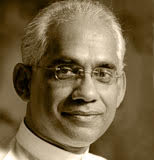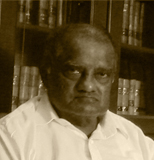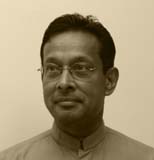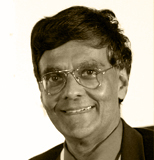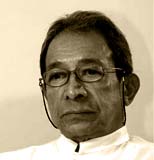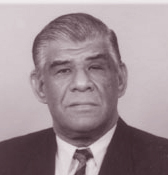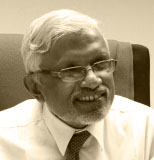This section focuses on Government initiatives taken in developing the enabling environment necessary for ICT led growth and development. It encompasses the policy and legal considerations necessary for ICT based development. It also includes accounts of the measures taken on institutional development.It includes a comprehensive description by Prof. Mohan Munasinghe on the National Computer Policy of 1983, which was one of the very first computer policies in the region. No other country at that time had such a well-defined computer policy as this. Setting up the first Government apex body on IT, the Computer and Information Technology Council of Sri Lanka (CINTEC) is also included.
This section also includes Jayantha Fernando describing the area of Law and ICT. The CINTEC Committee on Law and ICT was established in 1986. The Evidence (Special Provisions) Act No. 14 of 1995, the Electronic Transactions Act no. 19 of 2006, the Computer Crimes Act no. 24 of 2007 and the Intellectual Property Act no. 36 of 2003, data protection and privacy are included in this section.
- Eran Wickramaratne, MrRead More...
Mr. Eran Wickramaratne is the founder Chairman of the Information and Communication Technology Agency (ICTA) of Sri Lanka, which is the apex ICT institution of the Government, and mandated to take all necessary measures to implement the Government’s Policy and Action Plan in relation to ICT. He was the Advisor to the Ministry of Economic Reform Science and Technology in 2002 and played a key role in ICTA’s establishment and in defining the e-Sri Lanka Development Program, which role he played due to his conversance in development.
Mr. Wickramaratne states that the e-Sri Lanka Development Program was the first fully fledged integrated development project that the World Bank had been involved in, with any country in the world and therefore, it was a pioneering project. On planning the e-Sri Lanka Development Program Mr. Wickramaratne states that firstly a vision was needed. Then a plan and a Roadmap were developed. Thereafter it was necessary to work out in detail how the plan was to be implemented. A monitoring mechanism had to be set in place. He further states that sustainability should be ensured for such programs and ultimately all benefits should flow to the people of this land.
- Jayantha Fernando, Mr
Read More...Jayantha Fernando is an Attorney who pioneered ICT Law reforms in Sri Lanka for nearly 20 years. With a specialized Masters Degree (LLM) in IT & Communications Law (University of London), he gave leadership to Sri Lanka’s accession to the “Budapest Cybercrime Convention” and Sri Lanka’s ratification of the “UN Electronic Communications Convention”, both first for South Asia.
His ICT Law expertise covers a range of topics, including Information Security/ Cyber Crime, Intellectual Property Rights & Software licensing, Privacy, Electronic Transactions & Mobile Banking, Internet governance and drafting / negotiating complex IT Systems Contracts. He has extensive ICT law and policy reform experience in several countries and serves as an expert with both UNCITRAL and Council of Europe. In his spare time he is a Visiting lecturer at the Faculty of Law, Uni of Colombo, Sri Lanka Law College and at several other Universities.
He sits on several Boards, including at the national Cyber security Institution (Sri Lanka CERT). He was the former Chairman of the Board of Directors of LK Domain Registry (.LK). He is also General Counsel / Chief Legal Officer of ICT Agency (ICTA) of Sri Lanka.
In the Internet Governance arena, Jayantha was the first South Asian to be elected as Vice Chair of the ICANN’s Government Advisory Committee (GAC), and also served in the ICANN Nominating Committee, as its Associate Chair (2005-07). In June 2016, he became the first South East Asian to be elected to the nine (9) member global bureau of The Cybercrime Convention Committee (T-CY) of the Council of Europe in Strasbourg. The T-CY administers the Budapest Cybercrime Treaty at a global level.
Jayantha Fernando is also a British Chevening Scholar of the UK Govt (2002) and an Eisenhower fellow USA (2012).
- Kolitha Dharmawardena, Mr (Admissibility of information produced by computers and related devices)
Read More...Mr. Dharmawardena became a member of the CINTEC Committee on Law and Computers in 1986. He represented the Attorney General’s Department. CINTEC, the predecessor to the ICT Agency of Sri Lanka, set up the Committee on Law and Computers to address the “formulation and incorporation into the country’s legal system suitable measures relating to computers and IT ….”. The Committee, at the outset realized that there was a need to examine the law of evidence to ascertain whether it could deal with new conditions that could emerge through the use of IT. This key assignment on the preparation of proposals for legislation was given to Mr. Dharmawardena. This work on the admissibility of information produced by computers and other electronic devices were finalized and resulted in the Evidence (Special Provisions) Act No. 14 of 1995.
- Manju Haththotuwa, Mr
Read More...Mr. Manju Haththotuwa was educated at Royal College, Colombo, Sri Lanka. He has a BSc (Hons) from the Imperial College, London and also an MBA from the University of London. He was COO / Executive Director at Millennium IT (MIT), an industry leader in Stock Exchange software. Mr. Haththotuwa states that his involvement in ICT at MIT indicated his enthusiasm to develop the ICT sector.
Manju was the founder Managing Director / CEO of the Information and Communication Technology Agency (ICTA) of Sri Lanka. ICTA commenced operations on 1st July 2003, at Kirimandala Mawatha, Colombo 05. A key milestone that Manju achieved was setting up ICTA and commencing its operations; setting up the Focus Groups and Working Groups, setting up the processes, commencing the projects and programs, designing the logo and the attractive organization which made it a great place to work. ICTA reached many milestones key during his tenure and the way was paved and the foundation and culture of the organization was established for reaching many more.
- Mohan Munasinghe, Prof
Read More...Prof. Munasinghe was Founder Chairman of the Computer and Information Technology Council of Sri Lanka (CINTEC), established in 1984 as the apex government body on Computers and IT. He was a key figure in establishing CINTEC, chairing the Presidential Committee on Computer Policy (COMPOL, 1982-83), and helping to draft Act No.10 of 1984, which created CINTEC. He was also active in related areas, as Senior Energy Advisor to President Jayewardene (1982-86), member of the Presidential Committee on Telecommunications Policy (1984-85), Founding Governor of Arthur Clarke Centre for Modern Technology, and Founding Board member of Natural Resources, Energy and Science Authority (NARESA) of Sri Lanka.
He earned post-graduate degrees in engineering, physics and development economics from Cambridge University (UK), Massachusetts Institute of Tech. (USA), and McGill University and Concordia University (Canada). Prof. Munasinghe has also received several honorary doctorates (honoris causa), and is recognized as a world expert on sustainable development, climate change, energy, economics, environment and ICT policy. He has authored over 100 books and 350 technical papers, and won many international prizes for research – most notably sharing the 2007 Nobel Prize for Peace, as Vice Chair, UN Intergovernmental Panel on Climate Change. He is fellow of several international Academies of Science, and serves on the editorial boards of about 15 professional journals.
He is presently Founder Chairman of Munasinghe Institute for Development (MIND), Colombo, Sri Lanka, and Chairman, President’s Expert Committee preparing the Sustainable Sri Lanka 2030 Vision strategic plan. During 50 years of distinguished public service, his career highlights include serving as Advisor to United States President’s Council on Environmental Quality, and Senior Advisor/Manager, World Bank. He has had direct field experience in projects implemented in over 90 countries, and taught as Visiting Professor at many leading universities worldwide. His work has directly contributed to two major achievements in global policy in 2015 – sustainable development goals (SDG) endorsed by the UN General Assembly, and Paris Climate Agreement at COP21.
- P.W. Epasinghe, Prof
Read More...Prof. P.W. Epasinghe was Acting Chairman and the Chairman of the ICT Agency (ICTA) of Sri Lanka and was the Chancellor of the University of Peradeniya until February 2017.
Prof. Epasinghe joined University of Ceylon as a student and passed the final exam with a First Class at the Special Science Degree in Mathematics. He was awarded a Special Science scholarship on the results of the exam and was placed first in order of merit in the entire Faculty of Science at this Special Science Degree Exam. He obtained his Ph.D. degree from the Imperial College of Science and Technology, London in 1965, and his thesis was titled “On the Formulation of Anti-Linear Quantized Fields”. He returned to Sri Lanka in 1965 and was promoted as a lecturer in Mathematics. In 1967 he was appointed as Professor and the Head of the Department of Mathematics of the University of Sri Jayewardenepura, then known as the Vidyodaya Campus of the University of Ceylon, where he was the Dean of the Faculty of Science in 1977/78.
In 1978 he returned to the University of Colombo and was appointed as the Head of the Department of Mathematics. At this time, he was also a visiting lecturer at the Institute of Chartered Accountants of Sri Lanka where he designed and delivered a course on “Quantitative Techniques in Decision Making” for a Postgraduate Diploma. He was the Dean of the Faculty of Science of the University of Colombo in 1983 and in 1994 and 1995, and was also the acting Vice-Chancellor on several occasions.
Prof. Epasinghe was appointed Chairman of the Tertiary and Vocational Education Commission in 1994 and in 1997 the Professor was appointed as the Chairman of the National Aquatic Resources Research and Development Agency. Professor Epasinghe joined the Board of ICTA when Prof. VK Samaranayake was the Chairman. When Prof. Samaranayake passed away in 2007, Professor Epasinghe was appointed as the Acting Chairman, and after three years was appointed as the Chairman of ICTA.
Professor Epasinghe has a distinguished track record in developing the country in all aspects of his career in both the University sector and in Government organizations. It was therefore appropriate and highly suitable for him to be appointed as the Chairman of ICTA in which post he gave guidance in steering the implementation of the integrated development program, the e-Sri Lanka Development Program, which was ICTA’s main mandate. He resigned from the post of ICTA Chairman in late 2014.
- V.K. Samaranayake, Prof
Read More...Prof. Samaranayake retired from the University of Colombo in 2004 after one of the longest and most distinguished careers spanning a total of 43 years of service, and has already been honored as Professor Emeritus of Computer Science, by the Senate and the Council of the University of Colombo.
Vanniarachchige Kithsiri Samaranayake was born to Mr. And Mrs. V.W. Samaranayake on the 22nd of May 1939 in Colombo. His father was the Principal of the Hewavitharana Vidyalaya, Rajagiriya, and his mother was a teacher at this school. Kithsiri Samaranayake had his early education in that same school and then joined Ananda College in 1948. He sat for a competitive examination through which he was admitted to Royal College in 1950. One of the pillars of his success has been that, through this entire period, Kithsiri Samaranayake lived and breathed in the environment of a Principal’s quarters where he was often co-opted into the educational processes and activities of the school.
Prof. V.K. Samaranayake entered the University of Ceylon to read for a degree in Science in 1956 and was selected to do a Special degree in Mathematics. His academic excellence was recognized and he was offered an Assistant Lecturer post immediately upon completing his degree with First Class Honors in 1961. Thus began a long and illustrious university career which spilled over to a service to the nation.
- Wasantha Deshapriya, Mr
Read More...Mr. Wasantha Deshapriya is the Secretary to the Ministry of Telecommunication and Digital Infrastructure. He was educated at Dharmasoka College, Ambalangoda and at the University of Kelaniya, Sri Lanka. He has been awarded a Postgraduate Diploma (ICT) from the University of Colombo School of Computing (UCSC) and completed his MSc Degree at Reading University, UK. Mr. Wasantha Deshapriya is a Sri Lanka Administrative Service officer with more than 30 years of public sector experience. He has been extensively involved in Government computerization projects.
Mr. Wasantha Deshapriya was initially employed at the Rubber Development Department, where he was in charge of the IT Units in the regional offices. He was involved in the computerization of the Rubber Replanting and Subsidy Administration Program from 1985 to 1994. He joined the Ministry of Public Administration as the Senior Assistant Secretary (IT) in 1998. He was a pioneer in introducing the use of ICT to the Ministry of Public Administration; the Ministry commenced emailing Public Administration Circulars to the entire public sector for the first time and these were also published on the Ministry’s website. The first website of the Ministry was created by a team led by Mr. Deshapriya in 1998. In 2003, Mr. Wasantha Deshapriya joined the Information and Communication Technology Agency (ICTA) of Sri Lanka. Eventually in 2005, Mr. Deshapriya was promoted to the post of Director, Re-engineering Government. Mr. Wasantha Deshapriya was a member of the ICTA Leadership Team and was a key person involved in shaping and building the Re-Engineering Government Program.
top - Jayantha Fernando, Mr

